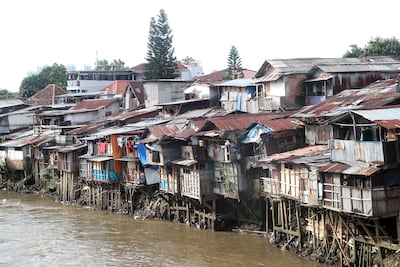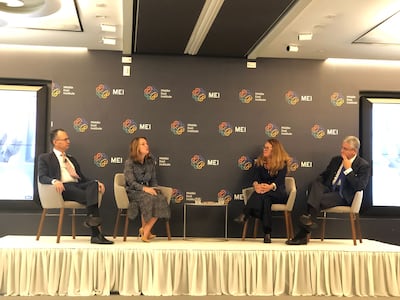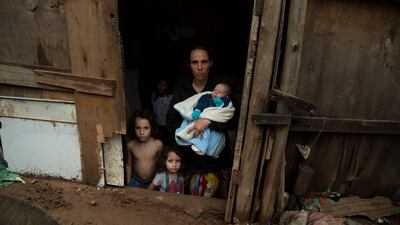Without “history-defying” rates of economic growth, global economies will not meet the goal of ending extreme poverty by the end of the decade, a report from the World Bank has shown.
The latest “Poverty and Shared Prosperity” report said that the Covid-19 pandemic dealt the primary setback to global poverty-reduction efforts and the Russian invasion of Ukraine has threatened to compound those historic hurdles.
“Progress in reducing extreme poverty has essentially halted in tandem with subdued global economic growth,” said World Bank President David Malpass.
“Adjustments of macroeconomic policies are needed to improve the allocation of global capital, foster currency stability, reduce inflation and restart growth in median income.”
The alternative, he added, is the status quo: slowing global growth, higher interest rates, greater risk aversion and fragility in developing countries.
The pandemic pushed about 70 million people into extreme poverty in 2020, the report said — the largest one-year increase since global poverty monitoring began in 1990.
By the end of 2020, an estimated 719 million people subsisted on less than $2.15 a day.

That exacerbated global inequality, with the most impoverished having shouldered the heaviest burden of global economic setbacks: income losses averaged 4 per cent for the poorest 40 per cent, double the losses of the wealthiest 20 per cent of the income distribution.
The World Bank argued in the report that strong fiscal policy measures made “a notable difference” in mitigating the pandemic's global economic impact, noting the average poverty rate in developing economies would have been 2.4 percentage points higher without a fiscal response.
“Yet government spending proved far more beneficial to poverty reduction in the wealthiest countries, which generally managed to fully offset Covid-19’s impact on poverty through fiscal policy and other emergency support measures,” the report said.
The World Bank released the report in tandem with its latest analysis on the Middle East's economic outlook, which highlighted how the regional economy avoided the worst impacts of global inflation and grew “faster” than expected, but it needs government reform to address “uneven” regional distribution of economic security.
Roberta Gatti, the World Bank's chief economist for Mena, said that inflation and setbacks from the Russia-Ukraine war must be addressed quickly to stave off a “silent crisis” of more long-lasting consequences.

“Let's say tomorrow inflation magically disappears. Temporary shocks can have permanent consequences,” said Ms Gatti at the Mena report's launch event at the Middle East Institute in Washington.
She argued that the Mena region in particular must work on transparency to better address looming consequences.
“With inflation, food prices go up, nutrition of children worsens, nutrition of pregnant mothers worsens … what keeps me up at night is that it's important to make this cost surface, so that policymakers know how to make trade-offs.”
Speaking on the panel with Ms Gatti, Ferid Belhaj, the World Bank's vice president for Mena, called on the region to take the economic signals as cause for government reform.
“The state is overwhelmingly present in the economy in Mena through state-owned enterprises that are mismanaged and that are frankly becoming a drain on the budget and a drain on the mere survival of the economies of these countries,” said Mr Belhaj.
“There is a revolution to be made, it's a big word, but at the end of the day, that's what you want.
“What we're talking about is, frankly, a revolution in terms of the state of mind and having a totally new approach to this work, the relationship between the state and the citizen, that will be built on trust and accountability.”


